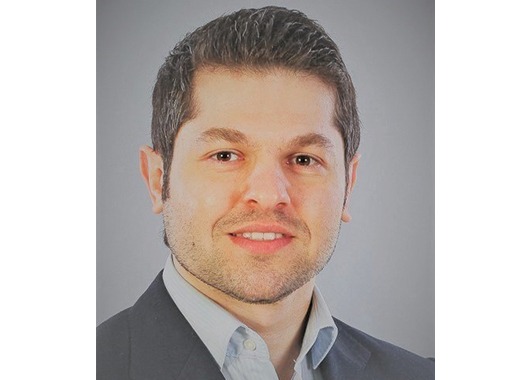Doctoral defence in Environmental Engineering - Majid Eskafi

Aðalbygging
The Aula
Live stream: https://livestream.com/hi/doktorsvornmajideskafi
Ph.D. student: Majid Eskafi
Dissertation title: Framework for Dealing with Uncertainty in the Port Planning Process, an Icelandic Case of the Ports of Isafjordur Network
Opponents: Dr. Hercules E. Haralambides- Professor at the Erasmus University Rotterdam,The Netherlands
Dr. Lóránt Tavasszy, Professor at Delft University of Technology, The Netherlands
Advisors:
Dr. Guðmundur Freyr Úlfarsson, Professor and the Head of the Faculty of Civil and Environmental Engineering, University of Iceland
Dr. Ali Dastgheib, Senior Lecturer at the IHE Delft Institute for Water Education, The Netherlands
Doctoral committee:
Dr. Poonam Taneja, Researcher at Delft University of Technology, The Netherlands
Dr. Gunnar Stefánsson, Professor at the Faculty of Industrial Engineering, Mechanical Engineering and Computer Science, University of Iceland
Dr. Ragnheiður Inga Þórarinsdóttir, Adjunct Professor at the Faculty of Civil and Environmental Engineering, University of Iceland and Rector of the Agricultural University of Iceland
Chair of Ceremony: Dr. Bjarni Bessason, Professor at the Faculty of Civil and Environmental Engineering, University of Iceland
Abstract:
Ports have always been evolving to satisfy the new or changing demands of stakeholders. In this unstable world, ports as dynamic systems are developed under a high degree of uncertainty. Furthermore, black-swan events, for instance, the financial crisis in 2008, the avalanche in Flateyri (Iceland) in 2020, the COVID-19 pandemic in 2020-2021 make successful port planning a challenging task. Indeed, the ever-increasing complexity of a port system and its long technical lifetime make uncertainty considerations inevitable in the planning process. Therefore, this research presents a structured framework to deal with uncertainties, including opportunities and vulnerabilities, in the port planning process. To this end, a structured stakeholder analysis is performed to effectively and timely engage stakeholders in the planning process. Fuzzy logic 3-dimensional decision surface is used to identify the salient stakeholders. Subsequently, the success of the future port is defined in terms of the specific objectives of the stakeholders. To develop this definition, a problem structuring method and fuzzy multi-attribute group decision-making method are synthesized. Then, a port throughput forecast is conducted that accounts for epistemic uncertainty, including model and parameters uncertainties, and thus increases the reliability of forecast results. The method identifies the influencing macroeconomic variables on port throughput by mutual information and then applies the Bayesian statistical method to forecast the port throughput. Effective actions are planned to seize opportunities and manage vulnerabilities that manifest in the projected lifetime. Therefore, the port can adapt or better withstand the vagaries of the future. The nonlinearity of dealing with uncertainty by application of the framework provides a robust and better plan toward its success. The framework supports decision making under uncertainty and facilitates adaptive port planning. The framework is applied to the Ports of Isafjordur Network in Iceland. The results indicate that the uncertainties mainly present opportunities in the short-time horizon, while in the middle-time horizon the port network is confronted with multiple vulnerabilities.
About the doctoral candidate:
Mr. Eskafi began his doctoral studies at the University of Iceland in August 2017. His research interest is focused on flexible and sustainable port development by adaptive port planning. He has been conducting his project for the Ports of Isafjordur Network in Iceland as a case.
He received research grants from the Municipality of Isafjordur (Ísafjarðarbær), the University of Iceland Research Fund (Rannsóknasjóður Háskóla Íslands), and the Icelandic Road and Coastal Administration Research Fund (Rannsóknasjóður Vegagerðarinnar). He received Erasmus+ exchange study and traineeship grants in 2017 and 2018, for a research exchange focused on the international port seminar, and port planning and infrastructure design at the IHE Delft Institute for Water Education in the Netherlands. He also received the University of Iceland travel grants in 2019.
His doctoral work has resulted in five published peer-reviewed academic papers in international scientific journals, and numerous presentations at international conferences in port planning and development. He has had seminar presentations for practitioner communities and has also written articles for the public.
Majid Eskafi



